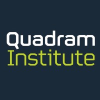-
Research Scientist
1 week ago
S3 Science London, United KingdomOur client is in a phase of rapid expansion and are looking to grow its Research and Discovery group by recruiting a Preclinical Scientist. The Research & Discovery Department is working on ground-breaking science in the rare disease field. · **The Role**: · The role will specifi ...
-
Research Scientist
1 week ago
VRS Recruitment London, United KingdomExciting opportunity to work with a successful pharmaceutical company, at the cutting edge of pharmaceutical development. · As a key member of the team you will be responsible for designing, developing and running LC-MS methods to quantify proteins in _in vitro_ and _in vivo_ sam ...
-
Research Associate/ Scientist
12 hours ago
Skills Alliance London, United KingdomJOB TYPE- Permanent- EMP TYPE- Full-Time- INDUSTRY- Pre-Clinical- SKILLS- Protein Engineering, Protein Production, Protein Expression, Protein Purification, Antibody Production, AKTA, SPR, Protein Construct Design- EXPERTISE- Any- SALARY TYPE- Annually- SALARY- Negotiable- JOB ID ...
-
Ai Research Scientist
4 days ago
JPMorgan Chase Bank, N.A. London, United KingdomThe goal of J.P. Morgan AI Research is to explore and advance cutting-edge research in AI, to develop and discover principles of impact to J.P. Morgan's clients and businesses. · We seek to hire researchers to develop novel optimization techniques, tools, and frameworks to model ...
-

Research Scientist Intern, Responsible Ai
1 week ago
Meta London, United KingdomMeta was built to help people connect and share, and over the last decade our tools have played a critical part in changing how people around the world communicate with one another. With over a billion people using the service and more than fifty offices around the globe, a caree ...
-
Summer Internship, Research Scientist Intern
3 days ago
Spotify London, United Kingdom InternshipSHIPStudents- Spotify has more than 400M listeners in more than 180 markets around the world, who use our music, podcast, and audiobook services to find what delights, entertains, educates, and informs them. Personalization provides the technology to serve them what they expect to fi ...
-
Research Scientist
1 week ago
Understanding Recruitment London, United KingdomResearch ScientistHow will your next-level research transform worldwide safety?We are looking for a Research Scientist to join this central Oxford AI team that focuses on the latest technology, including technology to create superhuman perception using camera arrays. As a Researc ...
-
Research Scientist
1 week ago
Stealth AI Startup London, United KingdomJob Description · Join Us in Pioneering the Future of Generative AI for Speech and Audio · Are you ready to be at the forefront of groundbreaking technology in generative AI? Our early-stage start-up seeks a talented and ambitious Research Scientist to join our dynamic team. If ...
-

Research Scientist
1 week ago
MSACL Connect London, United KingdomTranslating Pre-Clinical Research to Clinical Patient Care · The vitamin D metabolism mass spectrometry group is recruiting a Postdoctoral Research Scientist to design and conduct research projects in our recently established analytical chemistry translational endocrinology labo ...
-
Research Scientist
1 week ago
Google London, United KingdomPhD degree in Computer Science, a related field, or equivalent practical experience. · Candidates will typically have 2 years of experience leading a research agenda. · One or more scientific publication submission(s) for conferences, journals, or public repositories. · Candid ...
-

Research Scientists
1 week ago
COL Limited London, United KingdomPlease note that due to a high volume of very talented applicants, there may be a lag of several weeks between submission and follow-up from Apollo Research on your application. In the long run, we aim to explain and perhaps reverse engineer arbitrary mechanisms of arbitrary neur ...
-

Research Scientist
1 week ago
Quantum Flagship London, United KingdomResearch Scientist Applied Quantum Algorithms · Our team is leading the development, implementation, and application of quantum algorithms to computational problems of practical interest. We are seeking a research scientist with experience in designing and implementing quantum a ...
-

Research Scientist
2 weeks ago
Notpla Limited London, United KingdomThe Role · At Notpla, we create disappearing packaging carefully engineered for a healthy planet. Founded on the belief that nature knows best, we're an innovative, ideas and action-oriented scale-up developing and manufacturing packaging solutions from seaweed and plants that d ...
-

Research Scientists at
1 week ago
Google DeepMind London, United KingdomJob Application for Research Scientists at Google DeepMind at DeepMind · Research Scientists at Google DeepMind · London, UK Snapshot · If you are interested in a career as a Research Scientist at Google DeepMind, and thrive on pushing boundaries and achieving ambitious goa ...
-
Research Scientist
1 week ago
Quadram Institute United KingdomThis includes conducting MPS-based projects for academic and commercial research; developing advanced MPS and OOAC models to support QIB science in the area of food, microbiome and host interactions; providing training/supervision to QIB staff and students; The post-holder will w ...
-
Research Scientist
1 week ago
CK Group- Science, Clinical and Technical London, United KingdomCK Group are working in partnership with a leading UK life sciences biotechnology company to recruit an experienced Principal Scientist with expert virology knowledge, to join them at their site based in East London on a permanent basis. · Provide scientific expertise, leadershi ...
-

Research Scientist
1 week ago
Findauniversity Ltd. United KingdomMRC Laboratory of Medical Sciences, Medical Research Council · MRC Postdoctoral Research Scientist in Medical Image Analysis · Computational Cardiac Imaging Group · Fixed-Term, 3 years · MRC Band 4 Salary: £39,375 plus London allowances (£3,913 & £1,472) per annum* · A 3-year ...
-

Research Scientist
2 days ago
Professor Doctor Obi London, United KingdomThe Quantitative Stem Cell Biology lab, headed by Dr Silvia Santos, is seeking a Senior Laboratory Research Scientist (SLRS). The postholder will drive a research project and contribute to collaborative projects within the lab. · The Quantitative Stem Cell Biology lab, headed by ...
-
Research Scientist
6 days ago
Earlham Institute United KingdomYou will need to download, save and complete a copy of the application form using Microsoft Word or preparea copy of your CV that contains all the information requested in the application form. · Applications are invited for a Postdoctoral Research Scientist to join the Research ...
-
Research Scientist
1 week ago
Hyper Recruitment Solutions Ltd England, United KingdomAs the Metabolite Identification Scientist you will be responsible for leading the delivery of metabolite characterisation studies in support of human or animal health drug discovery. · You will be responsible for the training of others to perform all aspects of metabolite chara ...
Research Scientist - United Kingdom - The Interview Portal

Description
You could imagine what the surface of the Moon would look like, or you could be part of a mission that captures high resolution images and moderate resolution multi-spectral images of the lunar surface.
Prasun Mahanti, our next pathbreaker, Research Scientist at Lunar Reconnaissance Orbiter Camera Science Operations Center (Arizona State University), works for various space instrument missions, analyzing images of the Moon using statistical methods, image processing algorithms and computer vision.
Prasun talks to Shyam Krishnamurthy from The Interview Portal about taking the big leap from Information Technology to pursue a career in planetary research which was a progression from being fascinated by images from space, to working in an actual space mission during his graduate school.
For students, never be satisfied with the status quo, keep exploring and never hesitate to pivot your career even if it requires giving up a job that you have become used toI grew up in Calcutta (now Kolkata), in a place called Parnashree, and studied in St. Thomas Boys School, Kidderpore. I completed class 10 (ICSE) in 1995 and class 12 (ISC) in 1997 in the science stream.
My father is a scientist in Chemistry and was primarily responsible for my initial fondness for science and experiments in general.
My mother, a housewife, got me hooked on Bengali story books/literature.Avid readers themselves, both my parents inspired and nurtured my love to read, which has probably helped me more than anything else throughout my career.
Though I was never big into sports, I enjoyed playing football (soccer) and cricket with my friends at school, and carrom and chess at home.
What did you do for graduation/post-graduation?I did my undergraduate in Electronics and Telecommunications Engineering from Institute of Engineering & Management, Kolkata. I completed my M.S. and Ph.
D.
at Arizona State University (major:
Electrical Engineering)
What were the drivers that led you to such an offbeat, unconventional and unique career?
My current career in planetary science research/ engineering was a progression from being fascinated by images from space to being able to work in an actual space mission during my graduate school.
Space research /missions always fascinated me, but my graduate engineering classes allowed me to explore the intricacies of image analysis and remote sensing, an integral part of planetary science.
Planetary science/research is interdisciplinary in nature and involves various sciences and engineering. Several people influenced my love for science and engineering throughout my career. My interest in sciences started at home, inspired primarily by my father and my uncles. At school, Dr. Munshi, our Chemistry teacher, always pushed me to think about more challenging problems beyond the school syllabus and Mr. Francis, my mathematics teacher always urged me to be systematic in solving problems.During undergraduate engineering studies, Dr. M.K. Mukherjee – inspired me to be bright and lucid while explaining the most complex theories; and Dr. P. Mukherjee and Dr. G. Saha for inspiring me to go beyond the textbooks into the world of ongoing research at an early stage.
My advisors (M.S. and Ph.
D.) during grad school – Dr. Cochran and Dr.
Taylor were the ones who taught me over many exchanges how to have an open mind while exploring unknown problems in science and engineering.
They also taught me how to be brutally honest about knowledgeability and how to systematically build upon existing knowledge. Finally, it was Dr. Robinson who provided me the opportunity to work in a live space mission.Discussions (and work) with him made me realize the diverseness and applicability of what I had learned so far and develop a love for the deeper aspects of planetary science.
As I look back, there is a common thread connecting all these people; they were all very passionate about their subjects/ research whenever they communicated.
I do think that trait rubbed off on me, and I am deeply thankful for that.How did you plan the steps to get into the career you wanted? Or how did you make a transition to a new career? Tell us about your career path
After my graduation (undergraduate degree) I got hired by Tata Consultancy Services (TCS) as Assistant Systems Engineer and worked for about five years in information technology.
While working at TCS, I wanted to pursue higher studies, and this changed my career path.I always felt the need to pursue higher studies and I was particularly interested in signal processing, since it seemed to me that signal processing connected the worlds of humans and machines (over-simplistic enough I guess).
During my B.Tech we learned about signal processing and I loved the subject, but it was apparent to me that it was not enough.
I left TCS for graduate studies in the United States, majoring in Electrical Engineering and specializing in Image Analysis and Computer Vision.
While in graduate school, I also worked for various research groups at the ASU campus, including LROC (Lunar Reconnaissance Orbiter Camera), a lunar mission/research operations group for the NASA LRO mission.
My doctoral research was never linked to my work at LROC and was in an interdisciplinary topic that involved Chemistry, Mathematics, and Image Processing.
The problem was to provide a theoretical background for particle streak velocimetry. Particle streaks are blurs produced when bright particles travel really fast and captured via normal imaging (not high-speed imaging).From the theory developed, we can characterize the forces that produce such streaks leading to controlling these forces and hence particle motion.
In my doctoral work, the application area was microfluidics where electrical forces move particles inside micro-channels in lab-on-a-chip devices.Cameras fixed to microscopes captured videos of moving particles and my work was to analyze these videos and perform image processing to mathematically model the motion of these particles.
As I mentioned before, I initially worked as a student worker at LROC during my M.S.I completed an internship at LROC (working for the NASA LRO mission) while pursuing my doctorate in EE in a very different topic.
After my Ph.D., I got hired as a post-doctoral researcher at LROC.
How did you get your first break?
I got my first break towards working in the planetary science/ exploration domain by starting to work part-time as a student worker at ASU while also being a graduate student pursuing my MS in Electrical Engineering.
What were some of the challenges you faced? How did you address them?One of the challenges I faced early in grad school was finding the right balance between my school work, my research work, and my part-time job and still finding time to cook, sleep, and communicate with my family in India.
The process urged me to be efficient with my own routine and time allocation.Having spent more than 25 years of my life in India, it was very difficult initially to not feel sad, especially during the festival times back in India, where one could meet family and friends.
I do not think I believed this was a challenge initially, as this was expected, but I still got affected.
As time passed, I met new people both local to Arizona and the United States and from various places and encountered new customs practiced for holidays and festivals that I did not know.
Additionally, I started attending events organized by Indian cultural societies in Arizona (mostly centered around Indian festivals).Can you tell us about your role as a Researcher at LROC?
I am a research scientist at the School of Earth and Space Exploration at ASU, and I work for various space instrument missions.
Currently, I am involved in the NASA LRO mission as a co-investigator for the camera (LROC) team. I am also involved with the South Korean KPLO mission as the Deputy Principal Investigator for the ShadowCam instrument. Additionally, I provide support (science/ engineering) for other missions being handled at my workplace.The Lunar Reconnaissance Orbiter (LRO) isa NASA robotic spacecraft currently orbiting the Moon in a polar mapping orbit.
The LRO mission's primary objective is to make fundamental scientific discoveries about the Moon while also help in identifying safe landing sites, locating potential resources and characterizing the radiation environment on the Moon.
LRO carries seven instruments and one of them is the Lunar Reconnaissance Orbiter Camera.LROC, is a system of three cameras (two narrow angle cameras and one wide angle camera) mounted on the LRO that capture high resolution black and white images and moderate resolution multi-spectral images of the lunar surface.
Each instrument on the LRO has a Principal Investigator (PI) led operations and science team, which operate from various institutions across the United States.
The LROC Science Operation Center is based at Arizona State University (Arizona, Tempe campus).Majority of the image analysis work is done by scientists, researchers, trained staff members and students by actually looking at the images.
Note that these images are not 'Earth-ly', so in many cases you may not know what you are going to find, though you can have a general idea based on your knowledge of planetary geology, core sciences, and imaging.
At LROC, we do use computer coding and software tools to analyze images.In my work, I regularly use statistical methods, algorithms in image processing and computer vision, and mathematical modeling to develop image/data analysis frameworks.
ShadowCam is another space camera that was designed based on the LROC.ShadowCam was developed for very low light imaging, which is the condition in permanently shadowed regions (PSRs) at the lunar poles.
LROC was not designed to acquire high signal-to-noise images at such conditions and ShadowCam is expected to 'fill-in' this information for the first time.
ShadowCam is one of four instruments onboard the Korean Aerospace Research Institute (KARI) Korean Pathfinder Lunar Orbiter (KPLO) satellite, currently scheduled for launch in September 2022.
My primary role in the ShadowCam project is to assist the PI in all the phases of ShadowCam design, development and operation, both tactical and strategic, in addition to my technical/ science roles.
In general, my day-to-day work at involves lunar research (using existing data to analyze and derive theory and models) and mission operations (lead and help as required in the day-to-day functionality e.g., calibration, targeting of sites for imaging etc.).
My work also involves mentoring, teaching and helping with public outreach wherever required. Occasionally, I also instruct courses at ASU where I teach undergraduate and graduate students.The best thing I like about my job is that it is intrinsically interdisciplinary, creating many ways to contribute toward a focused exploration of the unknown.
How does your work benefit society?In general, space exploration affects innovation, culture, and inspiration. Space exploration initiatives lead to unknown problems that require innovative solutions. Solving these problems leads to many discoveries that directly improve our day-to-day life. Via space exploration, we get a unique and evolving perspective of our place in the universe.
Space exploration missions help answer profound questions about our existence and propel the curiosity to discover beyond our immediate apparent limits.
Specifically, my work in lunar science/exploration helps understand the geomorphology on the Moon and answer questions like how the Earth-Moon system formed, why the landforms on the Moon have such shapes and what processes led to their formation.
These questions help us understand natural processes occurring on other bodies in the solar system and estimate possibilities of future human habitation.
In the short term, my work helps prepare for movement/ habitation on the lunar surface (e.g., by rovers) by understanding the lunar topography.
Tell us an example of a specific memorable work you did that is very close to youMy research work in planetary science is very close to me and every research project is unique, exciting, and memorable.
However, my teaching experience a couple of semesters back was also memorable.I had proposed a new class in Planetary Image Analysis to be introduced in the School of Earth and Space Explorations at Arizona State University.
The approval process for the class was very long, and it took more than two years to get the class started.
The course grew out of necessity to bridge the gap between classical theoretical planetary geology and data analytics based on space mission data.
I designed the syllabus for the class and instructed students and loved seeing their skills improve as the course progressed.
Your advice to students based on your experience?Try being 'hands-on' – to not just have a theoretical knowledge of subjects, but wherever possible, apply your ability to build something, make something useful to others.
Never stop pushing the boundaries of what you can learn, and always be on the lookout to add new skills.
Teach what you know to people who don't and to people who are not as privileged as you are.
Passionately ask questions when things do not make sense, till it does.Future Plans?
To keep doing good work in Planetary Science/ Exploration and teaching skills that I have learned to as many people as possible.
#J-18808-Ljbffr





